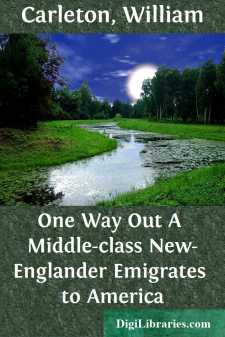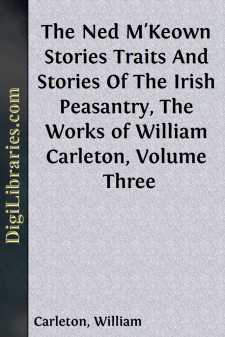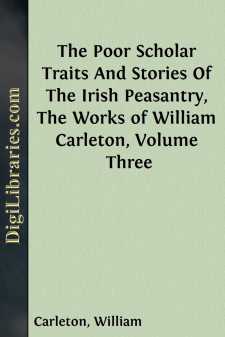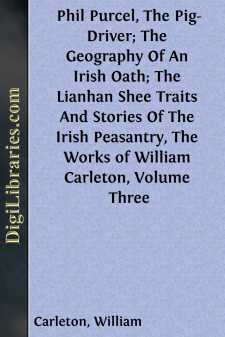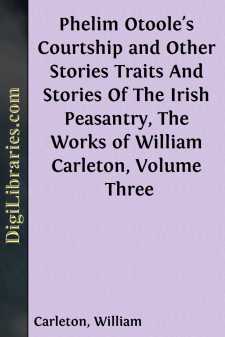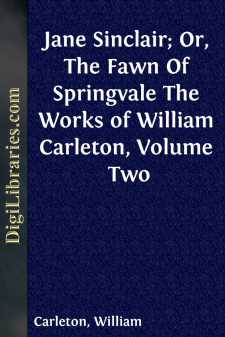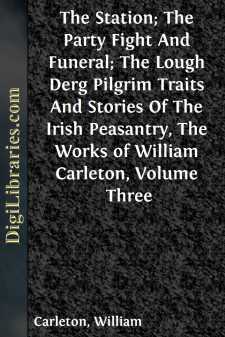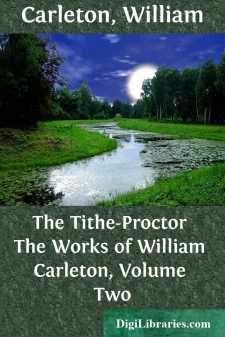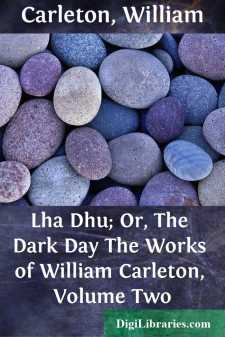Categories
- Antiques & Collectibles 13
- Architecture 36
- Art 48
- Bibles 22
- Biography & Autobiography 813
- Body, Mind & Spirit 142
- Business & Economics 28
- Children's Books 17
- Children's Fiction 14
- Computers 4
- Cooking 94
- Crafts & Hobbies 4
- Drama 346
- Education 46
- Family & Relationships 57
- Fiction 11829
- Games 19
- Gardening 17
- Health & Fitness 34
- History 1377
- House & Home 1
- Humor 147
- Juvenile Fiction 1873
- Juvenile Nonfiction 202
- Language Arts & Disciplines 88
- Law 16
- Literary Collections 686
- Literary Criticism 179
- Mathematics 13
- Medical 41
- Music 40
- Nature 179
- Non-Classifiable 1768
- Performing Arts 7
- Periodicals 1453
- Philosophy 64
- Photography 2
- Poetry 896
- Political Science 203
- Psychology 42
- Reference 154
- Religion 513
- Science 126
- Self-Help 84
- Social Science 81
- Sports & Recreation 34
- Study Aids 3
- Technology & Engineering 59
- Transportation 23
- Travel 463
- True Crime 29
William Carleton
William Carleton (1794-1869) was an influential Irish writer best known for his vivid depictions of rural Irish life in the 19th century. His most celebrated work, "Traits and Stories of the Irish Peasantry," provides a rich, detailed portrayal of the social customs, struggles, and folklore of Irish peasants. Despite facing criticism for his negative portrayals of certain aspects of Irish life, Carleton's writings are valued for their authenticity and contribution to Irish literature.
Author's Books:
Sort by:
by:
William Carleton
A BORN AND BRED NEW ENGLANDER My great-grandfather was killed in the Revolution; my grandfather fought in the War of 1812; my father sacrificed his health in the Civil War; but I, though born in New England, am the first of my family to emigrate to this country—the United States of America. That sounds like a riddle or a paradox. It isn't; it's a plain statement of fact. As a matter of...
more...
by:
William Carleton
INTRODUCTION. It will naturally be expected, upon a new issue of works which may be said to treat exclusively of a people who form such an important and interesting portion of the empire as the Irish peasantry do, that the author should endeavor to prepare the minds of his readers—especially those of the English and Scotch—for understanding more clearly their general character, habits of thought,...
more...
by:
William Carleton
THE POOR SCHOLAR. One day about the middle of November, in the year 18—, Dominick M'Evoy and his son Jemmy were digging potatoes on the side of a hard, barren hill, called Esker Dhu. The day was bitter and wintry, the men were thinly clad, and as the keen blast swept across the hill with considerable violence, the sleet-like rain which it bore along pelted into their garments with pitiless...
more...
by:
William Carleton
PHIL PURCEL, THE PIG-DRIVER. Phil Purcel was a singular character, for he was never married; but notwithstanding his singularity, no man ever possessed, for practical purposes, a more plentiful stock of duplicity. All his acquaintances knew that Phil was a knave of the first water, yet was he decidedly a general favorite. Now as we hate mystery ourselves, we shall reveal the secret of this remarkable...
more...
by:
William Carleton
PHELIM O'TOOLE'S COURTSHIP. Phelim O'Toole, who had the honor of being that interesting personage, an only son, was heir to a snug estate of half an acre, which had been the family patrimony since the time of his grandfather, Tyrrell O'Toole, who won it from the Sassenah at the point of his reaping-hook, during a descent once made upon England by a body of "spalpeens," in...
more...
by:
William Carleton
PART I. If there be one object in life that stirs the current of human feeling more sadly than another, it is a young and lovely woman, whose intellect has been blighted by the treachery of him on whose heart, as on a shrine, she offered up the incense of her first affection. Such a being not only draws around her our tenderest and most delicate sympathies, but fills us with that mournful impression of...
more...
by:
William Carleton
THE STATION. Our readers are to suppose the Reverend Philemy M'Guirk, parish priest of Tir-neer, to be standing upon the altar of the chapel, facing the congregation, after having gone through the canon of the Mass; and having nothing more of the service to perform, than the usual prayers with which he closes the ceremony. "Take notice, that the Stations for the following week will be held as...
more...
by:
William Carleton
CHAPTER I.—The Chapel Green of Esker Dearg. The chapel of Esker Dearg, or the Red Ridge, was situated in a rich and well-cultivated country, that for miles about it literally teemed with abundance. The Red Ridge under which it stood was one of those long eminences, almost, if not altogether, peculiar to Ireland. It was, as the name betokens, a prolonged elevation that ran for nearly a mile and a half...
more...
by:
William Carleton
There is no country in the world whose scenery is more sweetly diversified, or more delicately shaded away into that exquisite variety of surface which presents us with those wavy outlines of beauty that softly melt into each other, than is that of our own green island. Alas! how many deep valleys, wild glens, green meadows, and pleasant hamlets, lie scattered over the bosom of a country, peopled by...
more...
by:
William Carleton
CHAPTER I.—An Adventure and an Escape. Spirit of George Prince Regent James, Esq., forgive me this commencement! * * I mean no offence whatsoever to this distinguished andmultitudinous writer; but the commencement of this novel reallyresembled that of so many of his that I was anxious to avoid thecharge of imitating him. It was one evening at the close of a September month and a September day that...
more...


